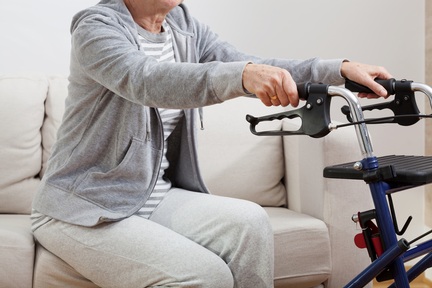One in five people in their sixties adapt homes to grow old with them
A generation of forward-thinking 60-year-olds are adapting their homes to make them suitable for their needs as they age, according to research conducted by independent charity, Age UK.
It has been revealed that a fifth of older people aged 60 to 69, also known as ‘future-proofers’ for their desire to plan ahead, have changed their homes for future convenience. One in ten cited maintaining their independence as a reason behind the adaptations.

Hugh Forde, managing director of Age UK, commented: “As these ‘future-proofers’ demonstrate, thinking about your living situation and how your needs might change as you age is important. However, while there is an emerging group of forward-thinking 60-year-olds, the reality is that for many older people these needs are only realised after an accident or a relative becoming ill.
“Often small adaptations can make a significant difference, not only helping people retain their independence and stay in their homes longer, but also reducing falls and accidents, and the subsequent cost of care and resources.”
Age UK’s research found that one in twenty people aged 60 and over confessed to not thinking about getting older, while one in five would only think about adaptations to their home if they were advised to by their GP. A further one in four would consider changes if they had an accident which affected their physical ability.
Yet, a third of people aged 70 and over who had carried out home adaptations, cited the fact that their home was no longer suitable for their needs, even though one in ten had been advised by family relatives and GP’s to make changes to improve their lifestyle.
In contrast a third of 60-year-olds who had made changes recognised an increase in confidence, with one in four believing they now worry less about the possibility of risks.
Age UK specialises in products for the evolving needs of older people and identified the most popular home adaptations, among ‘future-proofers’, to be a level access shower alongside an accessible doorway with a ramp.
Latest News
 29-Jul-24
Dementia Bus gives carehome.co.uk staff insight into life with dementia
29-Jul-24
Dementia Bus gives carehome.co.uk staff insight into life with dementia
 27-Jul-23
UK's top home care agencies in 2023 revealed
27-Jul-23
UK's top home care agencies in 2023 revealed
 30-Nov-22
A quarter of older people keep their falls secret from family
30-Nov-22
A quarter of older people keep their falls secret from family
 29-Nov-22
'Covid-19 has not gone away' say terminally ill
29-Nov-22
'Covid-19 has not gone away' say terminally ill
 28-Nov-22
IT consultant who received poor care opens 'compassionate' home care business
28-Nov-22
IT consultant who received poor care opens 'compassionate' home care business